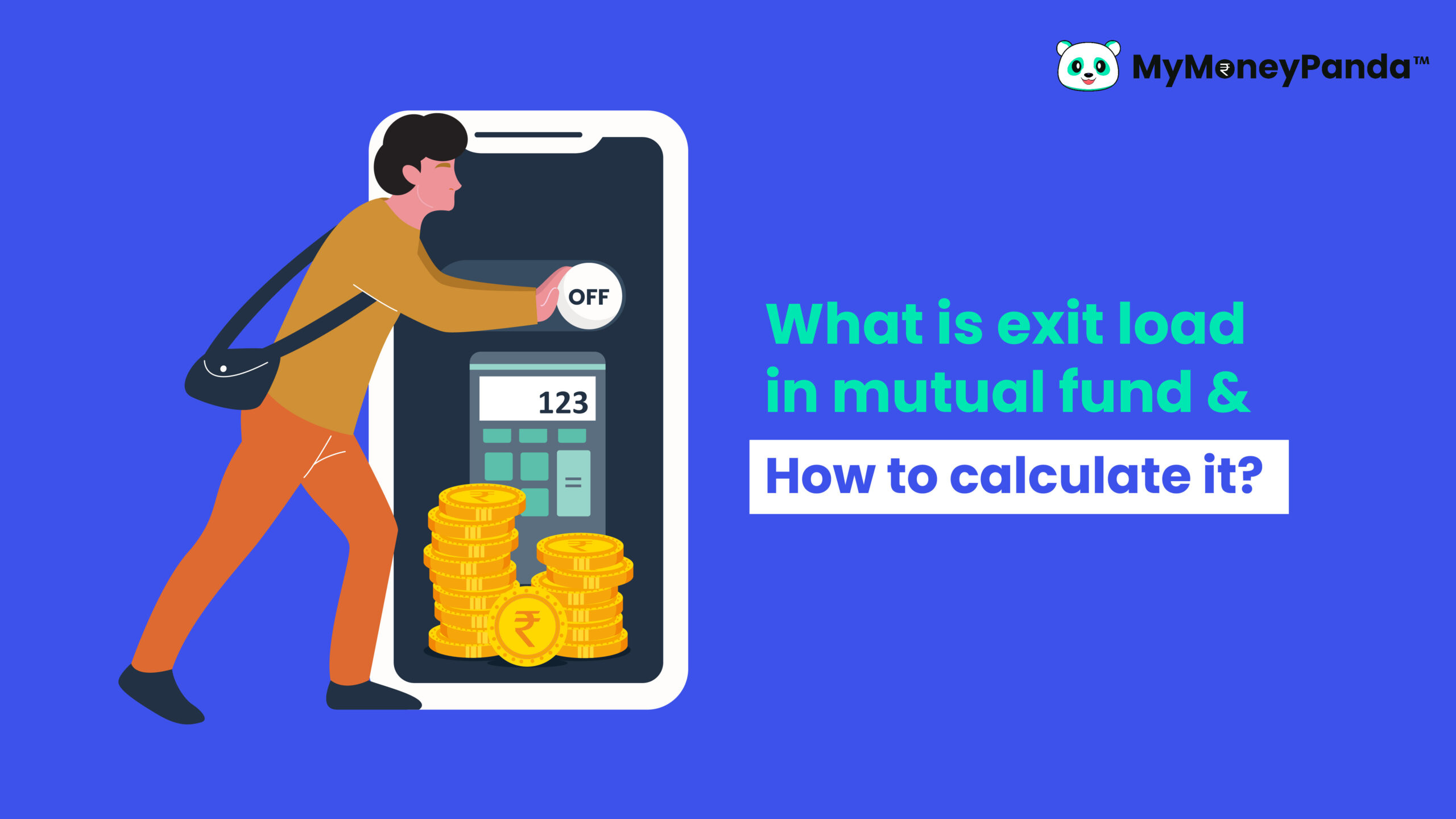Exit loads are fees charged by mutual fund firms to investors who redeem their units before a set period, usually one year. This fee is determined as a percentage of the fund value and deducted from the redeemed amount , before being credited into the respective bank account of the investor.
To determine the exit load, look up the exit load percentage in the fund’s offer document, also known as the SID.
What is an Exit Load In a Mutual Fund?
Exit loads are imposed to discourage early withdrawals, keep funds stable, and discourage frequent trading. It is computed as a percentage of the value of the fund value and subtracted from the redemption proceeds, lowering the amount paid to the investor. Exit loads differ between funds and are specified in the offer documentation
How to Calculate Exit Load in Mutual Funds?
Exit load rates vary depending on the type of mutual fund. If you deposited Rs 1,000,000 in a fund on October 1, 2022, with a 1% exit load for 365 days, then redeemed Rs 50,000 in units on May 25, 2023, you would be charged an exit load of Rs 500 because it was inside the 365-day timeframe. You will get Rs 49,500 after deducting the exit load. However, if you redeemed the units after October 1, 2023, you would not be subject to an exit load and would get the entire redemption value.
Exit Loads on Types of Mutual Funds
Mutual Fund Exit loads Vary by Category
- Equity Funds: Because equity funds are designed for long-term investment, exit loads are often higher than in debt funds. Exit loads are charged by the majority of actively managed equity funds. Index funds, on the other hand, do not often incur exit loads.
- Hybrid Funds: Exit loads for early redemptions are imposed on hybrid funds, including arbitrage funds. Many investors need to distinguish arbitrage funds from very short-duration funds such as overnight funds, which have no exit loads. In practice, most arbitrage funds impose exit loads on redemptions within 15 to 30 days. When contemplating arbitrage funds, investors should have a one-month or longer investment horizon to avoid exit loads.
- Debt Funds: The exit loads on debt funds differ. Some debt funds, such as overnight and most ultra-short duration funds do not charge exit loads. Furthermore, specific debt fund categories, such as Banking and PSU funds and Gilt funds, do not have exit loads. Debt funds that invest in an accrual-based strategy often have greater exit loads.
Factors Influencing Exit Load
The following factors influence exit loads in mutual funds:
- Exit loads are linked to how long an investor retains their units. Lower or no exit loads may result from longer holding times.
- Fund houses set exit load rules, hence they might differ between funds and fund houses.
- Some funds may have various exit loads depending on the amount invested, to encourage larger investments or long-term commitments.
- Exit loads can be influenced by the type of fund (equity, debt, or hybrid) and its investing strategy.
- Funds meant for long-term investors have smaller exit loads than those designed for short-term trading.
Conclusion
Exit loads differ between funds and fund categories. While investors can quit at any moment, they may incur exit fees if they redeem shares too soon. Certain funds, such as overnight or particular loan funds, have no exit loads. Exit loads may apply in Systematic Withdrawal Plans (SWP) for early withdrawals.
Frequently Asked Questions
1. What is the entry load and exit load in a mutual fund?
The entry load, which is now prohibited, was a cost levied when purchasing mutual fund units. Exit load is a price charged when redeeming units too soon.
2. Can I exit the mutual fund at any time?
In most situations, you can withdraw from mutual funds at any time, but exit loads may apply if you redeem units before the holding term expires.
3. Which mutual fund has no exit load?
Some mutual funds, such as many overnight and ultra-short duration funds, do not charge exit fees. The exit load policies of individual funds may differ.
4. Will I have to pay an exit load if I opt for the SWP option?
Systematic Withdrawal Plan (SWP) redemptions may be subject to exit loads if they occur before the fund’s prescribed holding period. Check the terms and conditions of the fund.
